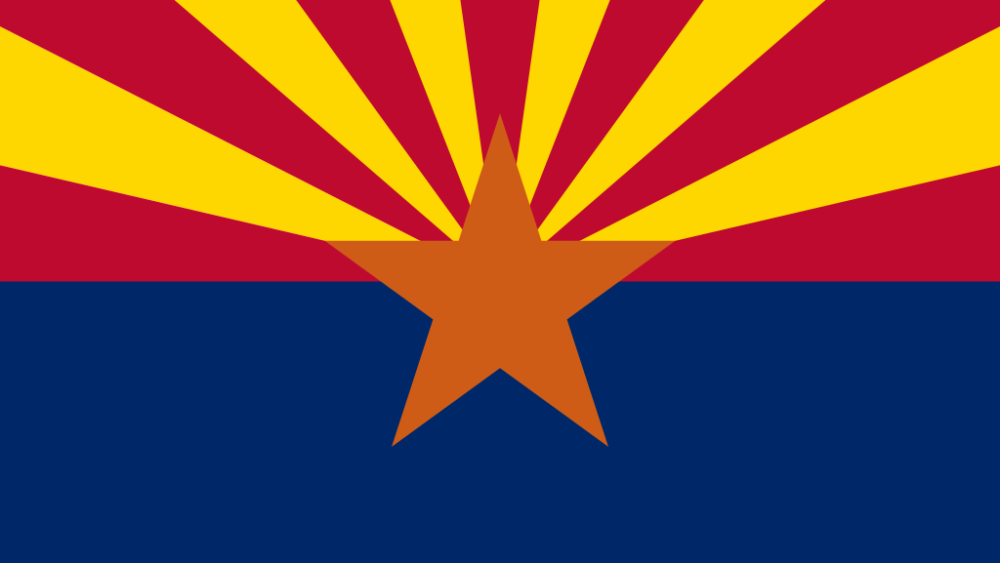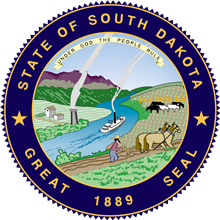September 18, 2024 •
Oakland Ballot Measure To Strengthen City Ethic Rules
Voters will decide whether to pass a ballot measure this upcoming November election which would tighten the city’s public ethics laws. Ballot Measure OO would establish and revise various requirements of the Public Ethics Commission and its members. It would […]
Voters will decide whether to pass a ballot measure this upcoming November election which would tighten the city’s public ethics laws.
Ballot Measure OO would establish and revise various requirements of the Public Ethics Commission and its members.
It would also amend the lobbyist registration act to prohibit lobbyists from making direct payments of more than $50 per year to local elected officials, candidates, and their families.
If approved by voters on November 5, the measure would be effective 10 days after the vote but the amendments to the lobbyist registration act would be effective January 1, 2025.
June 13, 2023 •
New Alaska Ballot Measure Introduced
A newly filed ballot measure has been introduced to reestablish campaign contribution limits in Alaska. In 2021, a federal appeals court struck down most of Alaska contribution limits on First Amendment grounds. The ballot measure would cap contributions at $2,000 […]
A newly filed ballot measure has been introduced to reestablish campaign contribution limits in Alaska.
In 2021, a federal appeals court struck down most of Alaska contribution limits on First Amendment grounds.
The ballot measure would cap contributions at $2,000 per election, with limits being adjusted for inflation every 10 years.
The new initiative will appear on the 2024 ballot if it is certified by the lieutenant governor and collects the requisite number of signatures.
October 13, 2022 •
Arizona Voters To Decide Original Donor Disclosure

Arizona State Flag
On November 8, Arizona voters will decide on a campaign finance ballot measure that would require disclosing names of original campaign donors. Proposition 211 would require that anyone making independent expenditures of more than $50,000 on a statewide campaign or […]
On November 8, Arizona voters will decide on a campaign finance ballot measure that would require disclosing names of original campaign donors.
Proposition 211 would require that anyone making independent expenditures of more than $50,000 on a statewide campaign or $25,000 on a local campaign to disclose the names of the money’s original sources, which would be defined as the persons or businesses that earned the money being spent.
Organizations that fail to disclose would face a fine equal to the amount contributed, or up to three times that amount.
Proposition 211 would apply to corporations, nonprofit groups and charities that currently are not required to disclose the names of the people who give money to political campaigns that the organization backs.
The proposition would pertain only to spending on political advertising and would be administered by The Citizens Clean Elections Commission.
May 12, 2022 •
Colorado Legislature Adjourns Sine Die
The 73rd Colorado General Assembly adjourned sine die May 11. During the session, legislation related to campaign finance was introduced. House Bill 1060 was passed, creating aggregate limits on candidates for school district director from persons other than small donor […]
The 73rd Colorado General Assembly adjourned sine die May 11.
During the session, legislation related to campaign finance was introduced. House Bill 1060 was passed, creating aggregate limits on candidates for school district director from persons other than small donor committees for any regular biennial or special school election of $2,500. Further, a $25,000 limit was established for contributions to candidates for school district director from small donor committees for any regular biennial or special school election. The bill takes effect July 1.
Additionally, Senate Bill 237 relating to ballot measure expenditures was introduced and passed through both chambers as of May 10. The bill would expand the definition of earmark for purposes of the Fair Campaign Practices Act to include contributions or expenditures greater than $1,000 to support or oppose a specified ballot issue or ballot question. Further, the bill would modify the process to determine whether an organization is an issue committee to include an examination of the organization’s pattern of conduct. Additionally, any person who makes a expends $5,000 in aggregate in a calendar year on direct ballot issue or ballot question expenditure expenditures must report to the secretary of state, and any person who makes a direct ballot issue or ballot question expenditure must disclose their name in certain communications about a ballot issue or ballot question. If passed, portions of the bill would become effective immediately and the section providing for disclosure to the secretary of state of $5,000 spent by an individual in a calendar year would become effective September 1.
This does not affect lobbyist reporting.
July 2, 2020 •
San Jose Council Approves Ballot Measure Barring Contributions and Gifts from Lobbyists
The City Council approved a November ballot measure relating to contributions and gifts from lobbyists. The proposed measure would bar lobbyists from making campaign contributions. The mayor, council members, and senior administrators would also be barred from accepting gifts from […]
The City Council approved a November ballot measure relating to contributions and gifts from lobbyists.
The proposed measure would bar lobbyists from making campaign contributions.
The mayor, council members, and senior administrators would also be barred from accepting gifts from lobbyists or city contractors.
The mayor and council members would also be required to sit out of any vote involving a person or entity contributing to their campaign or other cause in the last 12 months and the three months following the vote.
The proposed initiative would also give the mayor the power to hire and fire the city manager and department heads starting January 1, 2023.
The measure also includes a provision to align San Jose’s mayoral races with the presidential election cycle in an effort to increase voter turnout.
The City Council will hold a special meeting on July 28 where they will review the proposed ballot language before sending it off to the county Registrar of Voters.
November 9, 2016 •
Ann Arbor, MI Increases Mayor and City Council Term Limits
Ann Arbor voters approved a ballot measure to increase terms for mayor and city council to four years (Proposal 1). The ballot proposal will have the mayor and five city council seats elected in even-numbered years coinciding with Michigan gubernatorial […]
 Ann Arbor voters approved a ballot measure to increase terms for mayor and city council to four years (Proposal 1). The ballot proposal will have the mayor and five city council seats elected in even-numbered years coinciding with Michigan gubernatorial elections and the other five city council seats will be elected in even-numbered years coinciding with presidential elections.
Ann Arbor voters approved a ballot measure to increase terms for mayor and city council to four years (Proposal 1). The ballot proposal will have the mayor and five city council seats elected in even-numbered years coinciding with Michigan gubernatorial elections and the other five city council seats will be elected in even-numbered years coinciding with presidential elections.
Previously, half of the city council was elected on odd-numbered years.
The proposal will begin with 2018 elections and city council members elected in 2017 will serve a three-year term.
Proponents of the Voters Right to Know Act suspended their campaign for a California ballot measure to trace dark money and tighten lobbying and campaign finance regulations. Jim Heerwagen, who led the campaign, said he is ending the work on […]
 Proponents of the Voters Right to Know Act suspended their campaign for a California ballot measure to trace dark money and tighten lobbying and campaign finance regulations. Jim Heerwagen, who led the campaign, said he is ending the work on the initiative because there are now several bills in the Legislature that cover the same issues.
Proponents of the Voters Right to Know Act suspended their campaign for a California ballot measure to trace dark money and tighten lobbying and campaign finance regulations. Jim Heerwagen, who led the campaign, said he is ending the work on the initiative because there are now several bills in the Legislature that cover the same issues.
Heerwagen cited Senate Bill 1349, introduced to create a new campaign finance database, as one of the pending bills that would carry out the goal of his campaign.
January 7, 2016 •
Bill to be Introduced to Change Signature Requirements for South Dakota Ballot Initiatives
South Dakota Rep. Jim Bolin believes ballot initiatives should require support from voters across the state prior to being added to a ballot. He plans to introduce a bill limiting the number of signatures from the state’s three largest counties […]
 South Dakota Rep. Jim Bolin believes ballot initiatives should require support from voters across the state prior to being added to a ballot. He plans to introduce a bill limiting the number of signatures from the state’s three largest counties by population to no more than 50 percent of the signatures obtained. According to U.S. Census data, those three counties account for nearly 40 percent of the state’s population.
South Dakota Rep. Jim Bolin believes ballot initiatives should require support from voters across the state prior to being added to a ballot. He plans to introduce a bill limiting the number of signatures from the state’s three largest counties by population to no more than 50 percent of the signatures obtained. According to U.S. Census data, those three counties account for nearly 40 percent of the state’s population.
Bolin claims the signatures gathered in the three counties do not always represent the interest of the entire state. Ballot measure sponsors, however, do not want to restrict a voter’s right to be considered qualified based on his or her county of residence.
State and Federal Communications, Inc. provides research and consulting services for government relations professionals on lobbying laws, procurement lobbying laws, political contribution laws in the United States and Canada. Learn more by visiting stateandfed.com.

